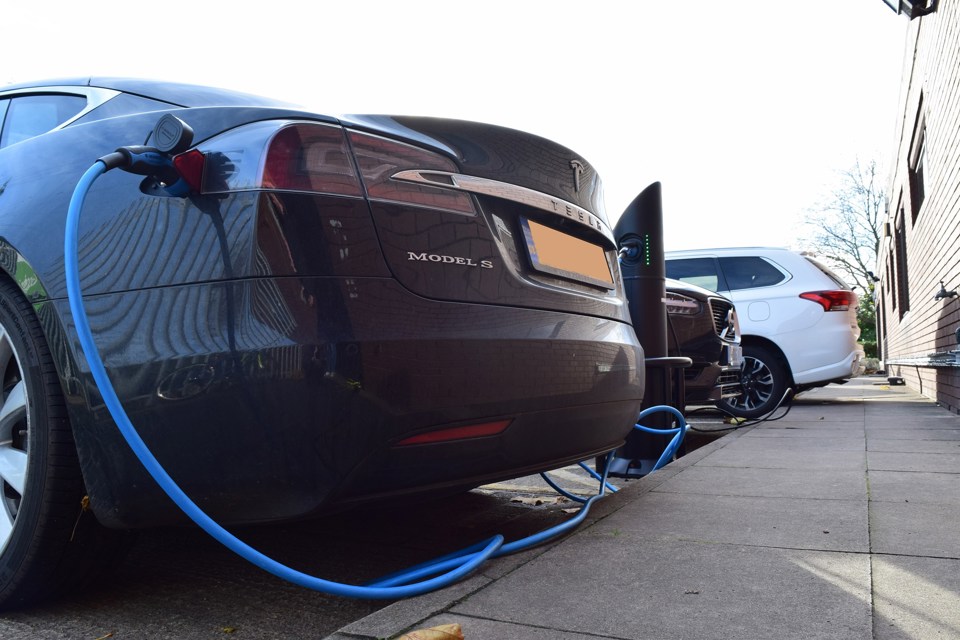A multi-million pound package to develop new batteries, boost electric vehicle (EV) charging infrastructure and incentivise fleets to adopt plug-in vehicles, was unveiled at the UK’s first Zero Emission Vehicle Summit.
Event sponsor Lex Autolease launched a £1 million fund to offer fleet decision-makers £1,000 for each EV they adopt. The lump sum is available for the first 1,000 customers, whether corporate or private, who sign-up for a zero emission vehicle (ZEV) from January 2019.
An additional 1,000 pure EVs could deliver an 8% increase in the total number registered next year. Just less than 4,000 plug-in vehicles were registered in August, including some 650 pure EVs. That’s compared to an overall figure of a little more than 94,000 vehicles sold, according to Society for Motor Manufacturers and Traders’ (SMMT) figures.
So far this year, 8,980 pure EVs have been registered, compared to 9,030 in the first eight months of 2017 – a fall of 0.6%.
Tim Porter, managing director of Lex Autolease, said: “In July, the Government set out its ambition for at least half of new vehicles to be ultra-low emission by 2030. Our announcement highlights our commitment to supporting this ambition and the role we, as the UK’s leading vehicle leasing provider, can play in helping to make it happen.”
Lex Autolease, which has a risk fleet of more than 380,000 cars, buys 100,000 vehicles each year – 4% of all new vehicles in the UK – and plays a key role in the used vehicle supply chain through the remarketing of a similar number of ex-lease vehicles each year.
It currently has 18,000 ultra low and zero emission vehicles on its fleet including 1,000 pure EVs.
Porter believes the leasing industry has a huge role to play if Government targets for ultra-low emission vehicles (ULEVs) are to be realised.
“We have been working with customers for a number of years to help them upgrade to low emission vehicles – where it’s the right move for them as individual drivers or fleets,” he said.
“We’re ideally placed to provide the guidance and support that drivers and fleets need in order to make this important transition.”
PLUG-IN PLEDGE
Lex Autolease’s EV initiative comes after the leasing industry’s trade body, the British Vehicle Rental and Leasing Association (BVRLA), launched a ‘Plug-in Pledge’ that will see its members’ combined plug-in vehicle fleet size increase 1,300% from 50,000 today to 720,000 by 2025.
BVRLA says that by then, vehicle rental and leasing companies will be buying 300,000 plug-in vehicles per year, representing an increase in the industry’s share of annual new plug-in hybrid and pure EV registrations from 36% to 60%.
Meanwhile, 16 of the UK’s largest van fleet operators have pledged to invest a combined £40m in the next two years on electric vans to improve air quality.
Under the Clean Van Commitment, which is led by charity Global Action Plan in partnership with energy supplier Engie, the fleets will put more electric vans on the road than have been bought by the whole UK industry in the past year (2,400 in total).
They have also committed to take on a further 18,000 electric vans by 2028 if sufficient charging infrastructure and competitively priced electric vans are available.
Fleets who have signed up to the initiative include Engie, Tesco, Anglian Water, Leeds City Council, Network Rail and Yorkshire Ambulance Service.
R&D FUNDING
Prime Minister Theresa May wants to put the UK at the forefront of the design and manu-facturing of zero emission vehicles, while increasing adoption rates among fleets and private motorists.
Appearing at the Zero Emission Vehicle Summit in Birmingham with Porter, she unveiled funding of £106m for research and development.
The cash will be split between six projects, three of which have direct fleet relevance. Of the figure £14m will go to support the development and roll out of hydrogen refuelling stations, £20m to accelerate the development of hydrogen vehicles and £2.5m to develop accredited technologies for the retrofitting of vehicles with cleaner technologies.
Industry also announced that it is investing more than £500m in projects relating to low emission technology.
They include an investment of £200m by the EV Network, the UK-based charging station development company, to develop 200 fast-charging stations throughout the UK.
The Prime Minister said: “We have provided more than £100m of funding for innovators in ultra-low emission vehicles and hydrogen technology. With a further £500m of investment from key industries in this sector.
“These measures will drive the design, use, uptake and infrastructure necessary for cleaner, greener vehicles – and, in doing so, it will help us drastically reduce a major contributor to our global warming emissions, as we seek to meet the Paris Climate Change Agreement.”
FLEET INCENTIVES
However, Government taxation policy around plug-in vehicles has been criticised for failing to incentivise fleets and company car drivers to go green, while charging infrastructure has been labelled inadequate.
The benefit-in-kind (BIK) rate for a pure EV rose from 9% in 2017/18 to 13% in 2018/19, and will rise again to 16% in 2019/20 before falling to just 2% in 2020/21.
Andrew Leech, managing director of Fleet Evolution, told Fleet News: “The Government should be keen to persuade more drivers to select EVs as their next company car, especially as it had pledged to remove all new petrol and diesel cars by 2040.
“But, instead, this confusing BIK tax policy is acting as a dampener on electric sales by deterring many would-be buyers.”
Leech believes it is imperative the Government brings forward to 2% BIK rate from 2019.
Meanwhile, the Freight Transport Association (FTA) says that to achieve significant uptake of EVs across the industry, there must be more support from Government.
Denise Beedell, policy manager for vans and Urban Transport at FTA, said: “There is currently insufficient charging infrastructure in place for electric vehicles to be adopted on such a large scale.
“And with the higher price of electric models, and no incentive to switch from conventionally fuelled vehicles, there has to be more work done to ensure it is an affordable and realistic option for businesses of all sizes.”
Shortcomings in local and central government policy have also been identified in two new pieces of fleet research.
Separate research from BT Fleet Solutions and The AA revealed a third (34%) of fleets said they had no strategy in place to deal with possible air quality restrictions and more than half (51%) say they have vehicles that are not compliant with the latest emissions standards.
NOT ENOUGH SUPPORT
Jennie Hill, director of business services at The AA, welcomed the PM’s commitment to support the adoption of zero emission vehicles.
However, she said: “We would like to see the creation of more initiatives to help fleets adopt the new technologies that will be developed from the Government’s latest investment.
“At the moment, very little financial support exists for small- and medium-sized businesses. Until this is implemented, new and greener technologies are in danger of passing them by.”
It was a similar message from the Aldersgate Group, an alliance of leaders from business, politics and civil society, which in its new report, Driving Ambition, sets out key business recommendations for rapidly cutting road transport emissions in the UK (fleetnews.co.uk, September 11).
Nick Molho, executive director of the Aldersgate Group, said: “The boost to R&D funding needs to be accompanied by much greater clarity on vehicle regulations, including future vehicle emissions standards after we leave the EU, fiscal incentives at point of purchase to promote the uptake of ZEVs, and a reliable nationwide charging infrastructure to create a smooth user experience.
“Technological changes will occur alongside a wholesale shift in travel patterns. We urge the Government to consider this now to plan a transport system fit for the future.”
Fleet News is urging the industry to support calls for the Chancellor to address key fleet concerns in November’s budget through its Fleet Budget Manifesto 2018.
Among the areas up for discussion before Fleet News submits its budget submission are to bring forward the 2% BIK rate for ULEVs to April 2019 and to increase ULEV incentives through a long-term commitment to plug-in grants.





















Login to comment
Comments
No comments have been made yet.